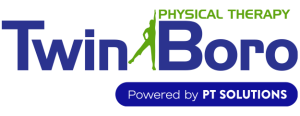Hip injuries can be a significant setback, affecting individuals of all ages. Whether caused by sports-related incidents, accidents, or degenerative conditions, hip injuries can have a considerable impact on one’s quality of life. However, there is hope for recovery through advanced rehabilitation techniques. At Twin Boro Physical Therapy, we utilize innovative approaches to rehabilitation for hip injuries in New Jersey to provide cutting-edge solutions and recovery.
The Complexity of Hip Injuries
 The hip joint is one of the body’s largest and most complex joints, connecting the thigh bone (femur) to the pelvic bone. Due to its anatomical intricacies and constant use in everyday movements, the hip is susceptible to various injuries. Common hip injuries include:
The hip joint is one of the body’s largest and most complex joints, connecting the thigh bone (femur) to the pelvic bone. Due to its anatomical intricacies and constant use in everyday movements, the hip is susceptible to various injuries. Common hip injuries include:
- Strains and Sprains: These often result from overuse or sudden, strenuous activities, causing damage to the muscles, tendons, and ligaments surrounding the hip joint.
- Labral Tears: The labrum is a ring of cartilage that lines the hip socket. Tears in this cartilage can lead to pain and reduced hip joint stability.
- Fractures: Hip fractures can occur due to falls or accidents, especially in older adults with weakened bones (osteoporosis).
- Arthritis: Hip arthritis, whether osteoarthritis or inflammatory arthritis, can cause chronic pain and stiffness in the hip joint.
Advanced Rehabilitation Techniques
- Rehabilitation for hip injuries has evolved over the years, incorporating advanced techniques that offer better outcomes and faster recovery. Twin Boro Physical Therapy is at the forefront of implementing these innovative strategies to help patients regain mobility and quality of life.
- Manual Therapy: Manual therapy involves hands-on techniques performed by experienced physical therapists. It can include joint mobilization and soft tissue manipulation to improve joint range of motion and reduce pain. Manual therapy can be particularly effective for patients with hip injuries as it directly targets the affected area.
- Gait Analysis: Precisely analyzing a patient’s walking or gait pattern is essential for hip injury rehabilitation. Identifying abnormalities in a person’s walk can help therapists tailor rehabilitation programs to correct these issues, reducing pain and preventing future injuries.
- Functional Strength Training: Advanced rehabilitation focuses on functional strength training exercises. These exercises mimic real-world movements, helping patients regain their ability to perform daily activities without discomfort.
- Cutting-Edge Equipment: Twin Boro Physical Therapy’s state-of-the-art facilities have the latest rehabilitation equipment, such as anti-gravity treadmills, electrical stimulation devices, and more. These tools enhance the rehabilitation process and provide patients with a higher level of care.
- Patient-Centered Care: Advanced rehabilitation techniques also encompass a holistic approach, addressing the physical aspects of recovery and the psychological and emotional components. The care is personalized to meet each patient’s unique needs and goals, ensuring a comprehensive and effective rehabilitation experience.
Get Started Today!
Hip injuries can be challenging, but with advanced rehabilitation techniques, patients can regain mobility, reduce pain, and improve their overall quality of life. Twin Boro Physical Therapy’s commitment to innovation, experienced team, and patient-centered approach makes us an excellent choice for those seeking advanced rehabilitation for hip injuries in New Jersey. Our team of dedicated and experienced physical therapists is passionate about helping you reclaim your quality of life.
With 51 convenient locations throughout New Jersey, accessing advanced rehabilitation has never been easier. You can find a location near you or schedule an appointment online to start recovering today!

